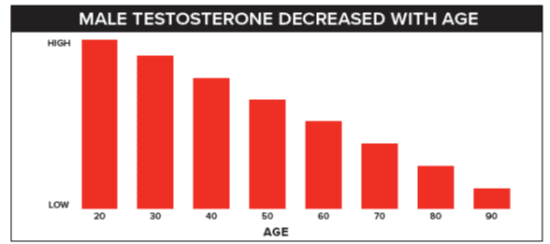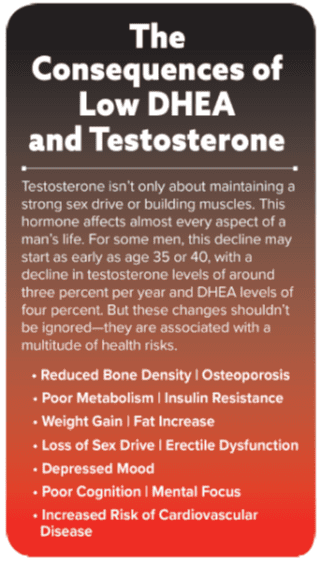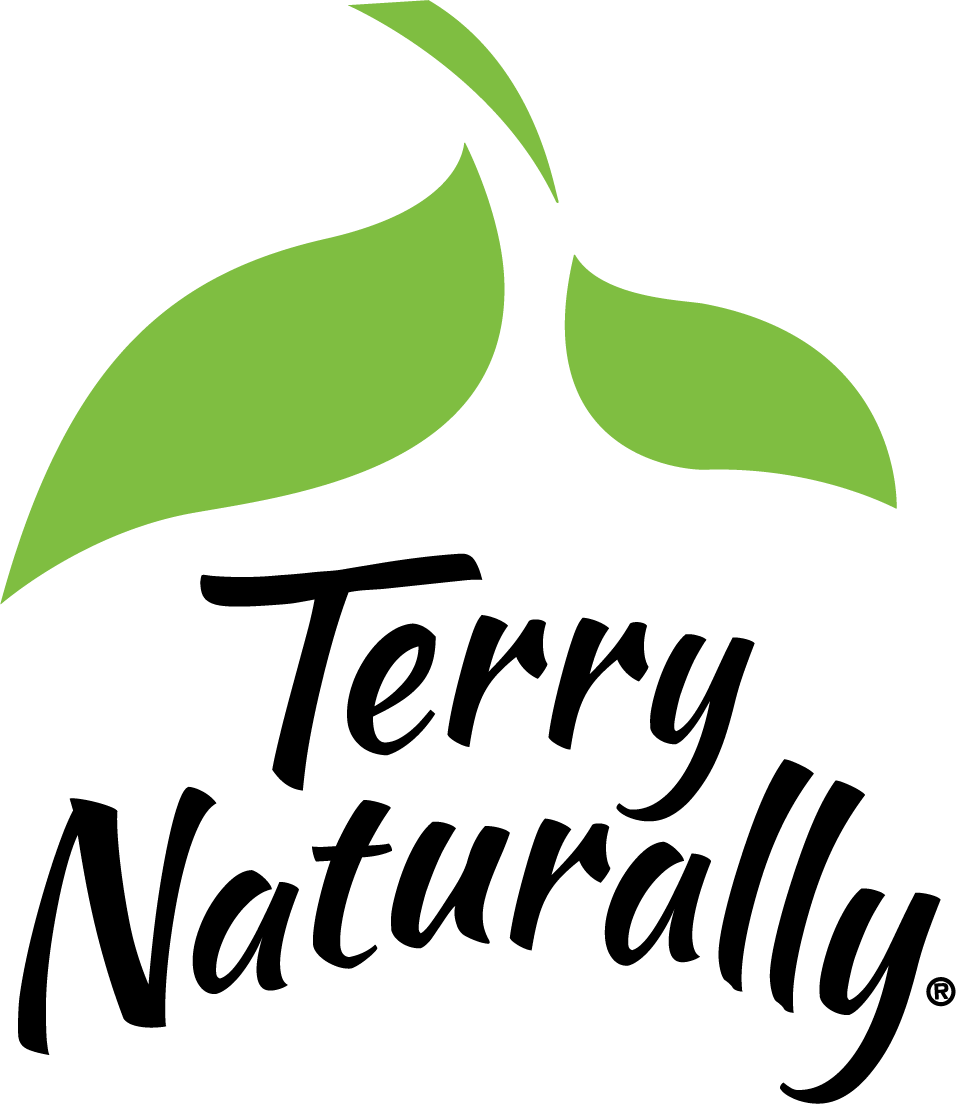As men age, they may notice a lack of energy, shrinking muscle mass, lower libido, a tougher time recovering from physical exertion, and more irritability with normal challenges that a few years before wouldn’t have bothered them a bit.
If that sounds familiar to you, you’re far from alone. Reduced muscle mass is a common problem for men, and I think low testosterone levels are likely the reason why. After age 40, free testosterone levels can decline at the rate of around 2 to 3 percent each year.
But even though low testosterone levels are common, they’re not inevitable. Fortunately, there are nutrients that can help recharge your strength, sex drive, and vitality.
Ashwagandha
Clinical trials of ashwagandha (Withania somnifera) frequently confirm what practitioners of traditional medicine knew: ashwagandha boosts testosterone levels, reduces feelings of stress, enhances exercise recovery, and helps build and maintain lean muscle.
One clinical study found that in just eight weeks, ashwagandha boosted the testosterone precursor dehydroepiandrosterone sulfate (DHEA-S) by 18 percent and increased testosterone levels by almost 15 percent in overweight old. These same men reported dramatic improvements in energy, mood, and sexual performance.
Another clinical study found participants in the ashwagandha group were almost 90 percent more likely to report improved sexual function. In this study, ashwagandha increased serum testosterone levels by 17 percent compared to two percent for the placebo group.
Ashwagandha is also perfect for any man who wants to build lean muscle mass, get more from workouts, lose fat, and boost testosterone levels.
Dehydroepiandrosterone (DHEA)
DHEA is one of the most abundant and important hormones produced by the adrenal glands, and, among many other functions in the body, can be a precursor to testosterone. Unfortunately, levels of DHEA start dropping after the age of 25. By age 70 or so, DHEA levels may be only 10 percent of their former level.
Supplementation with DHEA can bring those levels up and improve workouts, boost free testosterone levels, and prevent the natural decline that occurs due to aging, intensive exercise, or both.
A clinical study that focused on middle-aged men examined the effects of DHEA supplements on free testosterone levels after high-intensity exercise. The participants took the DHEA the night before a high-intensity cycling session. Despite the combination of age and physical activity, the supplement actually restored the free testosterone and DHEA-S levels to above the participants’ baseline levels, which is impressive.

(DIM) Diindolylmethane
Cruciferous vegetables like broccoli are sources of the nutrient indole-3 carbinol, which during digestion is transformed into 3,3 diindolylmethane, or DIM. It so happens that intake of these foods, and by extension, DIM, has positive effects on hormone balance, including androgen receptor activity and estrogen. For men and women alike, this is what makes DIM so valuable.
Clinical research has shown changes in both circulating testosterone and estrogen levels can create conditions associated with low testosterone. Researchers found that declines in androgen levels led to reduced muscle size, strength, and overall lean muscle mass, and declines in healthy estrogen levels led to an increase in body fat. Lower levels of both led to reduced sexual function.
The proper conversion of testosterone into estrogen by aromatase, an enzyme synthesized in the testes, is key for a healthy libido and active sperm production. But like so many things, this process needs to be in balance in order to be beneficial. This is where DIM can help.
DIM helps prevent estrogen from developing into potentially dangerous metabolites, so it keeps hormone levels in the right ratios. Strengthening this balance with DIM may also help prevent prostate tumor formation and cancer spread.

Vitamin B6 as P-5-P
It’s well known that B vitamins (including vitamin B6) help you perform better during intensive exercise because they are crucial for energy production and synthesizing new cells, including oxygen-rich red blood cells. But vitamin B6 also helps synthesize testosterone, growth hormone, folliclestimulating hormone, and luteinizing hormone—all critical components of keeping testosterone levels elevated or recharging them when they aren’t. It also protects the testes from oxidative damage and preserves testicular glutathione levels.
While I think men need more vitamin B6, I recommend avoiding common forms like pyridoxine which need to be converted in the liver. Instead choose P-5-P, which is the active form of vitamin B6 an important nutrient—no conversion needed.
Boron

Boron is a common mineral (found in leafy greens, nuts, legumes, and fruits) frequently lacking in the diet. Researchers have calculated that the higher the boron intake, the less likelihood of developing prostate cancer. But even in less dramatic ways, boron levels are critical for the balance of sex hormones, including free testosterone and estrogen in the body.
Fortunately, supplementation has been shown to boost testosterone levels, which could have significant positive effects for overall energy, sex drive, and lean muscle mass.
Zinc
In men, zinc is found in its highest concentration in the prostate, where it helps synthesize and release luteinizing hormone for testosterone production. But zinc can easily be depleted by exercise, and even moderate deficiencies can affect testosterone levels.
One clinical study found that, when taken before and after intensive workouts, zinc increased both total and free testosterone levels in young men after just four weeks. And it improves testosterone levels in older men, too—another clinical study found that six months of supplementation almost doubled their serum testosterone levels.
Other research has found that zinc supplementation can positively affect semen and sperm quality and may regulate the conversion of testosterone into DHT—all important aspects of sex drive, fertility, and overall good health.
Recharge Your Testosterone and Recharge Your Life

Sometimes, it can seem that challenges or declines we see in life are inevitable. But of course, nothing could be further from the truth. Many of the choices we make, in our exercise, diet, and nutrient intake, have direct and profound effects on our health. For men, testosterone is critical to strength, libido, and daily energy. The nutrients I’ve outlined here can help recharge testosterone levels for a noticeable improvement in mental and physical well-being and overall vitality that any man can appreciate.
